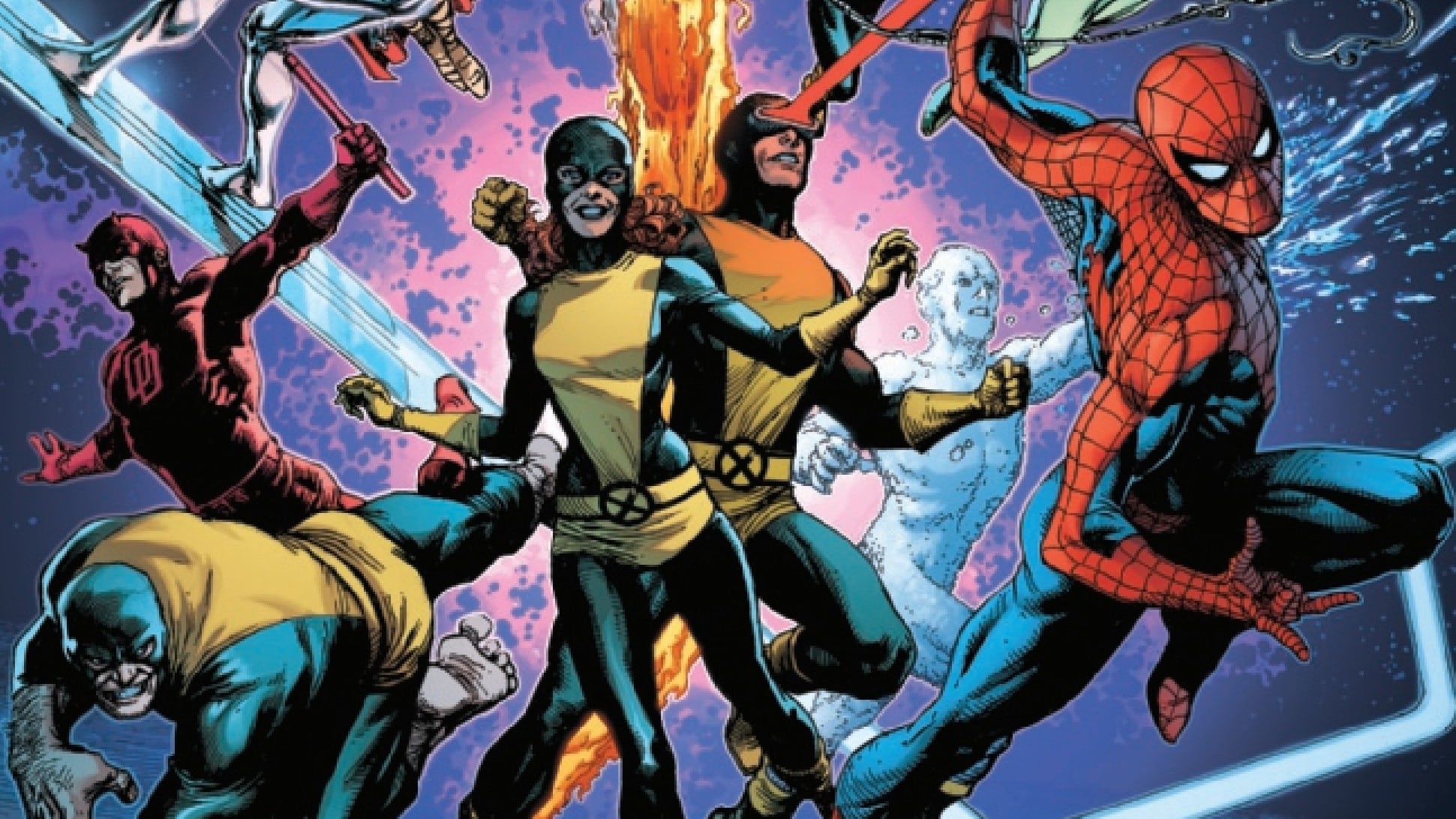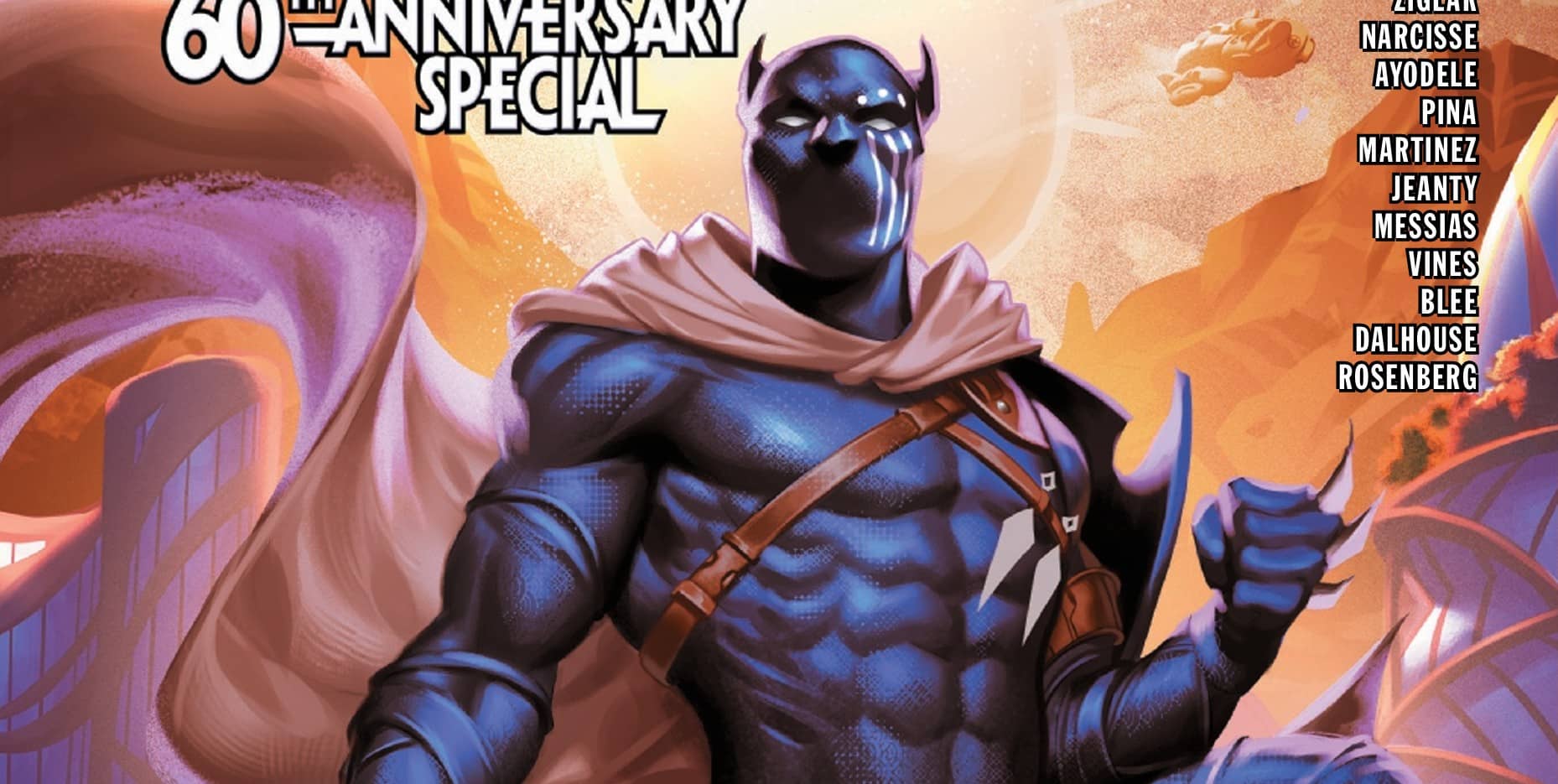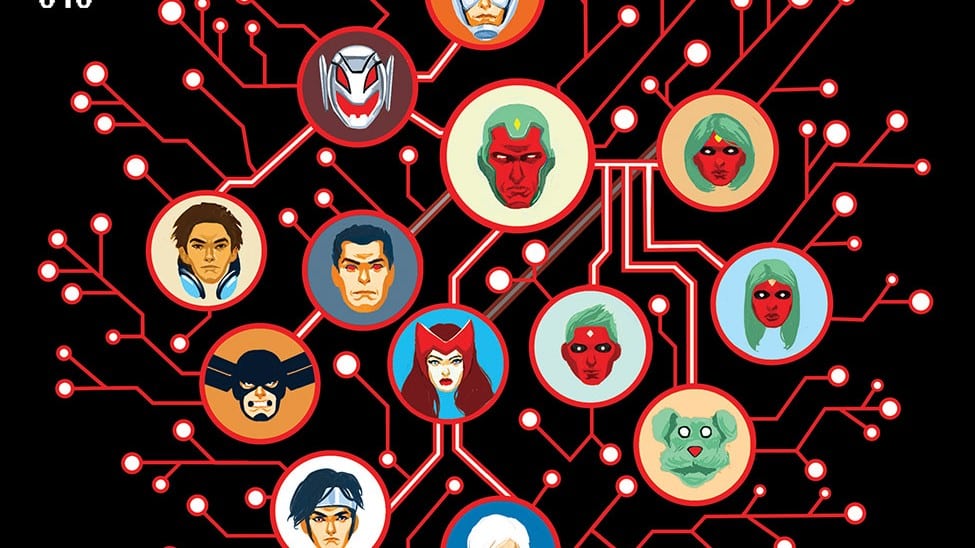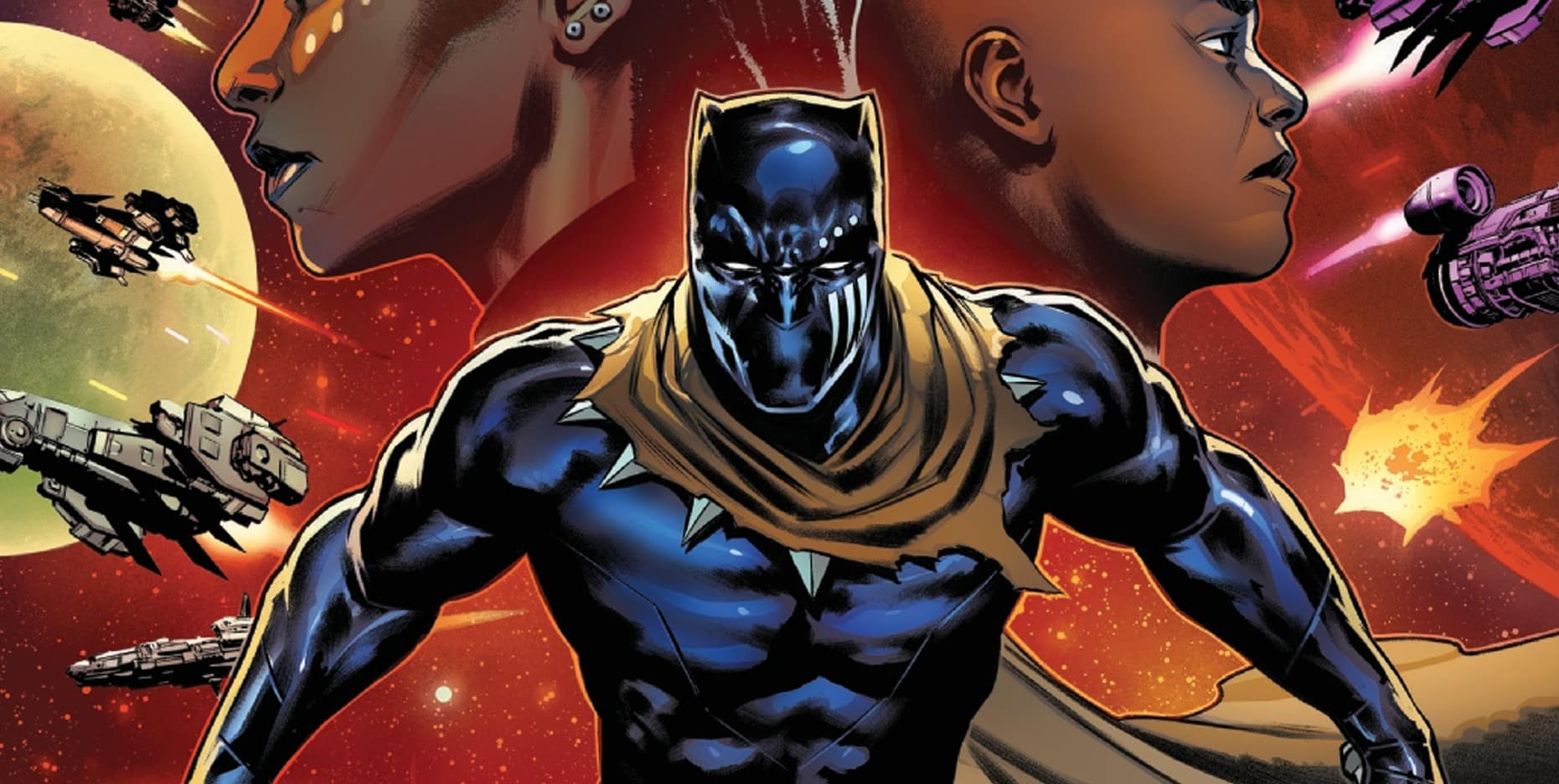Ever wonder where the Golden Age Human Torch got his sense of morality, or why Mar-Vell threw his lot in with humankind? Or why you shouldn’t take calls on your phone while battling the Lizard? Find these answers and more — with feeling — in Marvel Age #1,000, with writing by Jason Aaron, Armando Ianucci, Steve McNiven, Rainbow Rowell, Dan Slott, J. Michael Straczynski, Ryan Stegman and Mark Waid and art by Stegman, McNiven, Kaare Andrews, Laura and Michael Allred, Alessandro Cappuccio, Mattia Iacono, Adam Kubert, Pepe Larraz, Dave McCaig, Frank Martin, JP Mayer, Alejandro Sanchez and Marguerite Sauvage, plus lettering by Joe Caramagna.
You know how your favorite — OK, my favorite — superhero stories have quiet moments when the characters introspect, and chat, and bind up wounds in between the big fights? How some of them have non-powered one-off characters who observe and reflect on the action and let you imagine you, too, live on Earth-616, in the New York metro, and might run into Ms. Marvel or Matt Murdock on the PATH train or the crosstown bus? You know how some heroes just brood, and we want to watch them brood and reflect and remember even more than we want to watch them show off their cosmic powers against mighty foes?
Sure you do. You’ve read Kurt Busiek and Alex Ross’ Marvels miniseries from 1994, and Busiek and Brent Anderson’s open-ended, creator-owned series that extends the Marvels premise, Astro City, where heroes and their supporting casts make choices and feel things and show us their lives in between the set pieces, crossovers and punches. You remember the artist, or editor, who complained that if Chris Claremont had his way every issue of Uncanny X-Men would mostly be characters standing around talking, and you’re not sure you’d complain. You wonder, reader, how it would look if other classic Marvel characters got this kind of Astro City treatment, exploring their feelings in full-color modern styles, with writers and artists who knew the canon backward and forward and didn’t mind the absence of stakes, crossovers or consequential punches.
I admit it: You’re me. And if you’re me, you probably do want to pick up Marvel Age #1,000, which ends up feeling deeper and more affecting than a semi-vanity anthology comic celebrating the company’s somethingth anniversary has any right to be.
If you read ComicsXF on a regular basis — or if you’re me — you show up for even marginally promising stories about the X-Men. And you remember the Dennis Hopeless script for X-Men: Season One, seeing the Silver Age through Jean Grey’s eyes, as the finest comics retelling of the Silver Age (There are other greats, but they’re fanfic). You want to see something like it, but with an entirely other, perhaps a gauzier or less realist, visual. Artist Marguerite Sauvage and writer Rainbow Rowell, in what seems to be Rowell’s first X-story, has you covered: Here’s Jean in a world of boys’ and girls’ dorms, twin beds, basketball on the school lawn, borrowed hardback books and meaningful glances behind ruby quartz glasses, with the fights almost taken for granted. Sauvage even knows how to draw Angel — with a wink and a visual joke about Renaissance painting — and pre-blue, collegiate Beast. I give it an A for Awwwww. And maybe another A for Angelically Awesome. Can Sauvage draw, ink and color me?
Even closer to the good-hearted, pathos-chasing, irony-friendly Astro City model is Mark Waid, Alessandro Cappuccio and Mattia Iacono’s tale of the original, 1940s, android (or synthezoid) Human Torch, who escapes his venal inventor and embarks on a career of naive heroism because he thinks a fictional radio detective called Hy Heat is real: Hy Heat’s catchphrases (“Property is sacred … but human life is more sacred!”) give the Torch his admirable moral code.
Since the stories here come in the order their characters entered the Marvel Universe, the Torch’s tale gets to go first. It leads into a more familiar hero’s very familiar dilemma — will Peter Parker wrap up his fight with the Lizard to make it, for once, to a family dinner on time? Of course he won’t! Also he shouldn’t be texting while fighting supervillains. Put the phone down, Peter. Just put it down. That’s what Mary Jane would say, and does say. You’ve read this story before — you may have read it a hundred times before, without the cellphone — but it’s fun, and Ryan Stegman, J.P. Mayer and Dave McCaig make it look, not aggressively retro, but vividly right.
The volume-closing tale of boys named Stan, Steve and Jack isn’t so much saccharine as Stevia — you can skip it. Armando Ianucci and Adam Kubert’s Daredevil story, on the other hand, has legs. And ears. I don’t know the Daredevil canon the way I should, and I wouldn’t have picked Ianucci — creator and showrunner for Veep and the excellent Daily Show precursor The Day Today — as someone who totally got Matt Murdock’s dilemmas, but maybe he does, and maybe — as a future Hornhead regular writer — he will. Here we get DD’s experience with debilitating sensory overload, the kind that comes with certain versions of autism, though it’s misdiagnosed in Matt as tinnitus. Turns out he’s hypersensitive to … lying. (Also comes with certain versions of autism.) The panels of loud colors and brighter sounds really show what it’s like to just get overwhelmed, so that “normal” sounds make you want to flee the room, the building, the world. More like this, please.
If you made it this far without growing tired of the second-person gimmick, designed to engage you and make it personal, to establish a greater-than-usual connection to material that might not be as new or as lasting as its context claims — if you don’t mind the gimmicks, then you may be all too much like me, too generous to Marvel’s nostalgia-bait anthology comic designed to pop into the August-September lull between events. And you, too, may give Marvel Age #1,000 more attention than a harsher critic would say it deserves. That’s what I’d do. Especially if you were me.
Disclaimer: As an Amazon Associate, ComicsXF may earn from qualifying purchases.
Stephanie Burt is Professor of English at Harvard. Her podcast about superhero role playing games is Team-Up Moves, with Fiona Hopkins; her latest book of poems is We Are Mermaids. Her nose still hurts from that thing with the gate.






